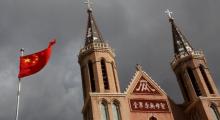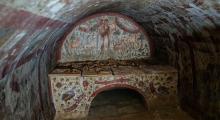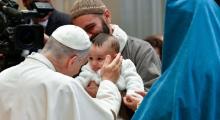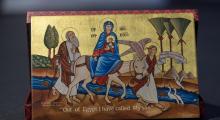Issued by the Catholic Center for Studies and Media - Jordan. Editor-in-chief Fr. Rif'at Bader - موقع أبونا abouna.org
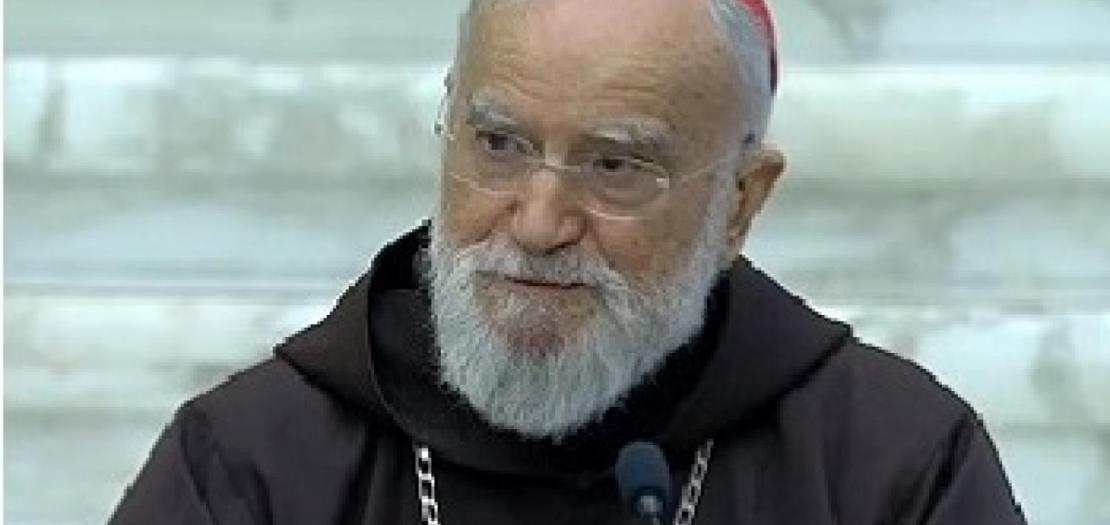
“Teach us to count our days aright, that we may gain wisdom of heart.”
This passage from Psalm 90:12 formed the heart of Cardinal Cantalamessa’s Advent Sermon delivered on Friday, December 4.
He began his reflections with an Italian poet’s 10-word poem written during the First World War, but which also expresses humanity’s experience of the Covid-19 pandemic: “We are like the leaves on the trees in autumn.”
The Cardinal said the world’s current predicament led him to focus his Advent sermons on the certainty of faith in the face of the frailty of human life.
Lessons for life
Death, he noted, can be spoken of in two different ways: either in light of Christ’s salvific death and resurrection, or in the light of wisdom.
Both have something to teach humanity. The first—the kerygma—shows us that death is not a wall delineating the end of existence but a “bridge to eternal life”.
The latter—a sapiential or wisdom-focused perspective—allows us to draw lessons for living a good life from the human experience of death.
Recall our own death
Cardinal Cantalamessa focused his first Advent reflection on the wisdom perspective, which the Trappist monks recall with the eternal maxim “Memento mori,” or “Remember that you shall die.”
The Wisdom books of the Old Testament, as well as the Gospels, provided ample reflections on the theme of human mortality, which was picked up in the tradition of the Church, especially by the Desert Fathers.
The Imitation of Christ, noted Cardinal Cantalamessa, also contains the admonition: “In the morning assume you will not get to the evening. Once the evening has come, dare not rely on the following morning.”
Rather than being a morbid fascination, he added, contemplating our mortality should lead us to “faith in eternal life.”
Pandemic-assisted reflections
The newly-created Franciscan Cardinal went on to invite his hearers to learn at “the school of Sister Death,” which holds some lessons amid the pandemic.
“The current calamity has come to remind us how little depends on human will when it comes to ‘planning’ and determining the future’,” he said.
Death, he recalled, kills “all differences and forms of injustice that exist amongst men.”
It also encourages us to live well, preventing us from getting attached to things or setting our heart only on our “earthly dwelling.”
Fear of eternal death
Cardinal Cantalamessa pointed out that death played an important role in evangelizing Europe many centuries ago, and could again be helpful in re-evangelizing it.
He added that one modern psychologist holds that the refusal or negation of death is at the root of every human action.
The Cardinal said the goal was not simply to restore humanity’s fear of death, since Jesus came to “free those who, through fear of death had been subject to slavery all their life” (Heb 2:15).
But, he said, “one needs to have experienced that fear to be freed from it. Jesus came to teach the fear of eternal death to those who knew none other than the fear of bodily death.”
Offering our life in the Eucharist
In conclusion, Cardinal Cantalamessa recalled that Jesus Himself preempted His own death with the institution of the Eucharist.
Participating in the Eucharist, he said, is how we can “celebrate our own death, and offer it up, day by day, to the Father.”
“What greater use can one think of making of life,” he asked, “than giving it, out of love, to the Creator who, out of love, gave it to us?”


